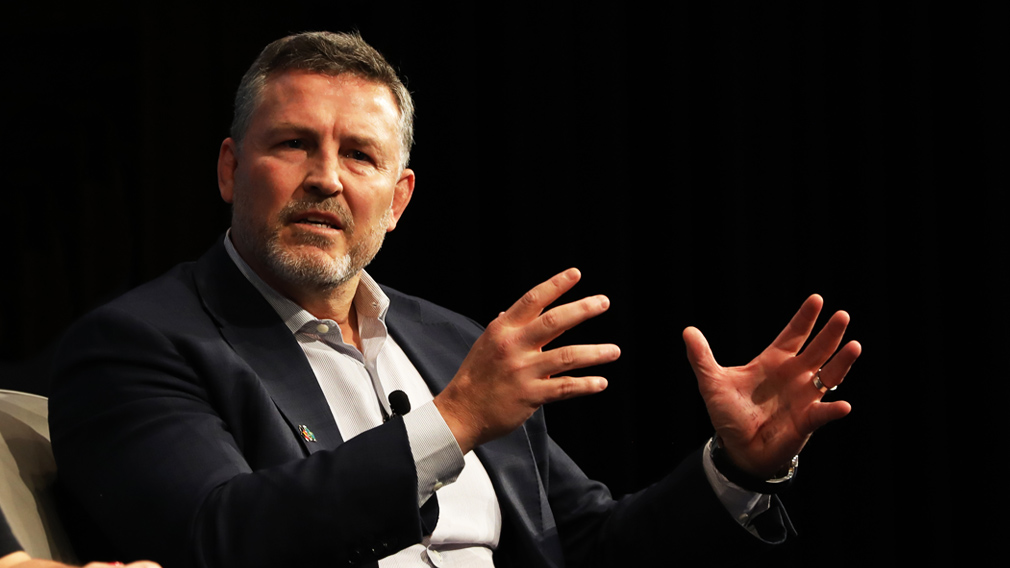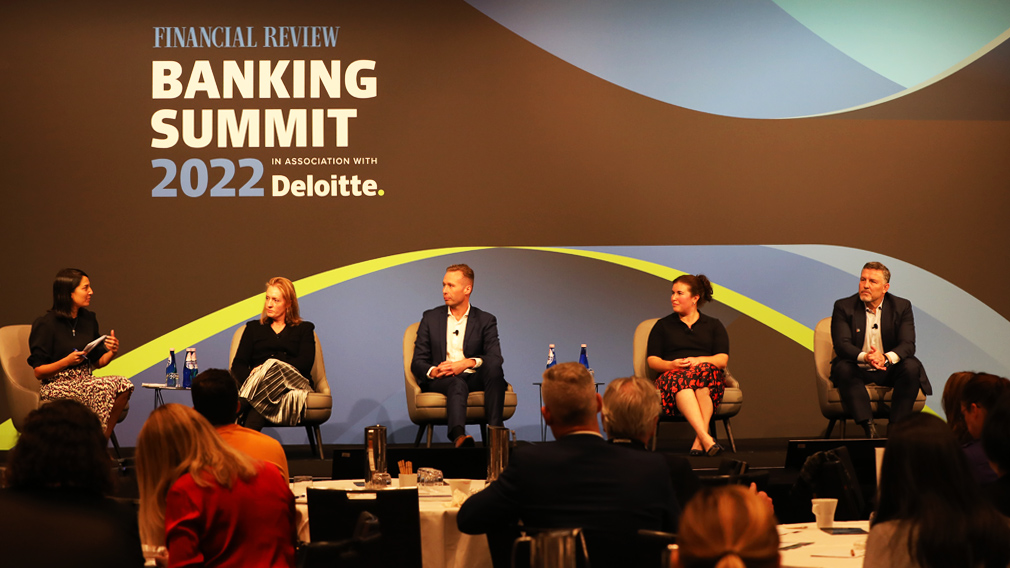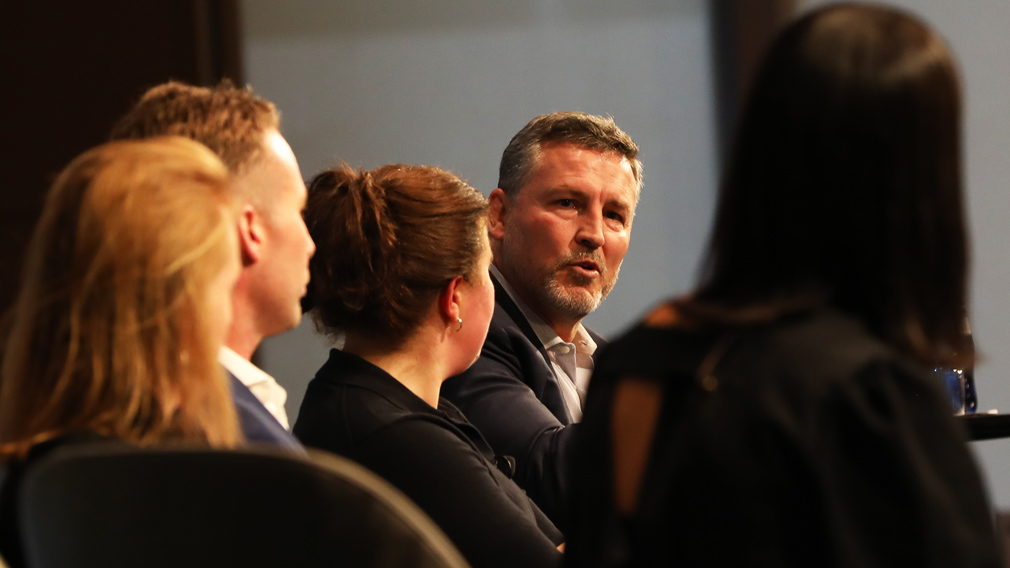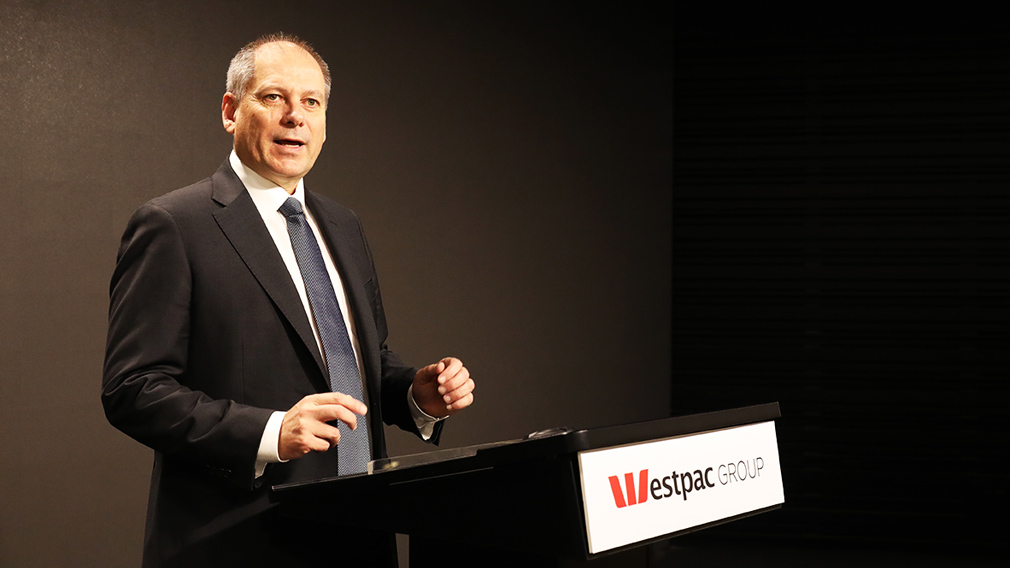No credible climate plan means no financing: Miller

Westpac Institutional Bank chief Anthony Miller at the AFR banking summit. (Emma Foster)
Companies must show they have a credible plan to get to net zero emissions, or else risk being frozen out of financing, Anthony Miller, chief executive of Westpac Institutional Bank, told the Australian Financial Review’s banking summit today in Sydney.
Still, Miller is optimistic that the transition to a greener economy can accelerate as governments, businesses and the community become more closely aligned on climate goals.
“Within five years, maybe earlier, if you don’t have a plan that stacks up - that’s credible and scientifically backed - to transition your business, to adjust your model, or exit what you’re doing, to ensure we get to net zero then you will not be supported, whether that be debt or equity or banking,” Miller said in a panel discussion.
“That’s not to say we’ve got it exactly right where we sit today,” he added. “We need to improve our skills and capability in terms of how we interrogate those plans, and how they stack up against targets that have been set.”

From left, moderator AFR's Ayesha de Kretser, Investor Group on Climate Change's Rebecca Mikula-Wright, Market Forces' Julien Vincent, Deloitte's Rochel Hoffman, WIB's Anthony Miller.
As climate groups ratchet up the pressure on fossil fuel producers, Miller said that even hard-to-abate sectors should get the chance to change, to ensure that the transition is a just one.
“It’s easy to say that’s got to stop and let’s move to something else, but then you get communities and jobs being dislocated because of something that has stopped suddenly and we didn’t think about how to transition them,” Miller said.
Westpac is targeting $15 billion in new lending to climate change solutions by 2030 and Miller said the bank was keen to support clean energy technologies. But it had to be done in a responsible, sustainable way, ensuring that depositors’ money was not put at risk.
Australia was now moving towards a greater alignment between layers of government, the private sector, and broader society on the need to transition the grid to renewable power and put the country in a better position to exploit the opportunities presented by the green economy.
“It's a huge challenge, but it’s the opportunity of a generation to completely re-boot, transform the country, and all banks want to be part of that transformation.”

Miller on the panel. (Emma Foster)
In an earlier session, Australian Prudential Regulation Authority chair Wayne Byres said that although APRA is careful about offering views on where banks should or shouldn’t invest, the banking system played an important role in the transition.
"There are ‘brown’ companies today that you would like to be ‘green’ companies in the future, but for them to get from brown to green they are going to need to finance the transition and finance the investment,” Byres said.
“If a company may not be so green today (it) shouldn't prevent a bank from funding them if there’s a good plan to transition to a low carbon business model.
“The markets will be disciplining the banks if they're not working hard to make sure that transition is achieved,” he said.


